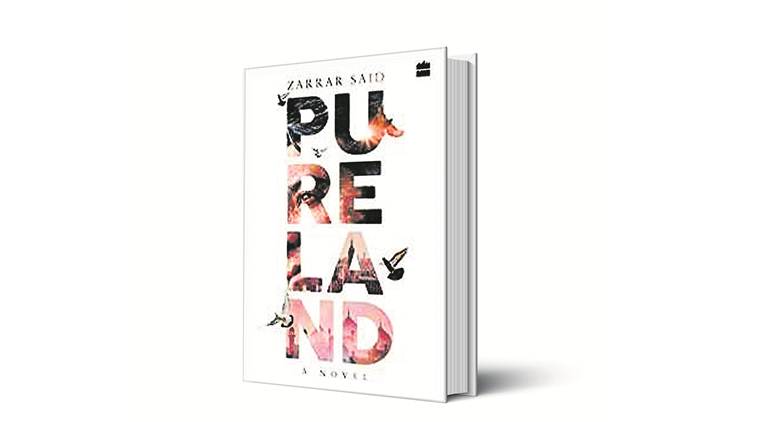
Book: Pureland
Writer: Zarrar Said
Publication: HarperCollins
Page: 328 pages
Price: Rs 599
There was once a scientist who won the Nobel prize for physics but left his country because under its laws, he could not profess his faith publicly, and stood the risk of being killed. He was disowned by his country for years after his death. On his gravestone, vandals removed the word “Pakistan’s” from the epitaph, to leave behind a sentence that in its incompleteness encapsulated the illogic and madness of it all — “First Nobel Laureate”. Zarrar Said’s debut novel Pureland takes Pakistan’s tragic betrayal of Dr Abdus Salam, to tell the story of a fictional country’s descent into chaos, in the process making a prophesy about the real Land of the Pure.
Said uses only the thinnest of veils, parody and magical realism as he develops the plot of this novel, in which gun-wielding men establish the Caliphate in a country called Pureland, “because we, the people of [this] nation, stood silently when the storm arrived, watching our culture and our way of life vanish before our eyes…They seized town after town…snatched childen from their mothers’ bosoms…”
The narrator of this all too probable tale is the assassin who kills Salim Agha, the Nobel Laureate scientist who leaves Pureland as a young student but cannot forget the love of his life, who still lives in a town called Lorr. He is killed just as he is about to test a machine that will take him back in time to the Lorr of his past, where he can once again meet Laila, who has just managed to flee Pakistan and is about to arrive at his secret hideout in America.
In Agha’s miracle birth to a poor alcoholic carpenter and his long-suffering wife was contained the prophesy of his greatness. From the poor cesspools of rural Pureland, Said takes the reader into the palatial Lorr home of the wealthy feudal lord-cum-army general who owns all the land in Agha’s village Khanpur, and has adopted the young, precocious Agha. When the two play chess together, they are like father and son. And when the landlord’s military friends plot a coup, Agha unwittingly helps them succeed, by correcting a young, brigadier with kohl-rimmed eyes who had got the “mathematical, trapezoidal, algebraic” problem of troop deployment for the coup all wrong.
Along the way, he falls out with the feudal lord too, when he crosses the master-slave line by falling in love with the stunningly beautiful daughter of the house. And at his colonial-era school called Blisschesterton (any resemblance to Aitchison is not coincidental), where the students are “handcrafted casks of influence…[p]repared to become men of Scotch tumblers and imported cigars…to captain cricket teams and govern empires, to marshal armies and wage wars”, all the English and cricket do not prevent Salim’s classmates from outing him as Ahmadi and beating him up. Salim escapes it all with a scholarship to study in America that sets him on the path to which he was destined.
Said throws into the story a whole cast of characters like Salim’s brother Tamboo Charming, who ends up as a sex-guru in America, Laila’s brother Khalil who turns into a fundo, the kohl wearing brigadier who becomes General Zaid and hangs a Prime Minister, and Mitti Pao, Salim’s school cricket captain who becomes the Pepsi bottle-kissing captain of the national team — all fictional and all real. Lorr itself weaves in and out of the real McCoy, with its Mall Road and Rolla Paya transport company, Badshahi Mosque and Bil-Qul Mahal.
For a writer who clearly aspires to wield magic realism with the ease and deftness of a Rushdie and makes an impressive debut, Said spoils it now and then by being a tad too explanatory, as for instance, about Partition and how Pureland was created, and speechifying about how feudalism works in Pureland. The voice of the narrator is faintly reminiscent of another Pakistani author, one used by another Pakistani writer Mohsin Hamid in The Reluctant Fundamentalist.
Pureland succeeds at many levels. Firstly, it is a great plot, because many a time fact is truly stranger than fiction. Dr Salam was not killed by an assassin’s bullet, but his country did drive a knife through his heart by rejecting him. Ahmadis continue to be persecuted and even killed in Pakistan. Then, it is a deeply political story of one man’s love for his country, or the memory of it, which is his beloved Laila. I won’t be giving much away if I said that like all good love stories, this one is doomed.